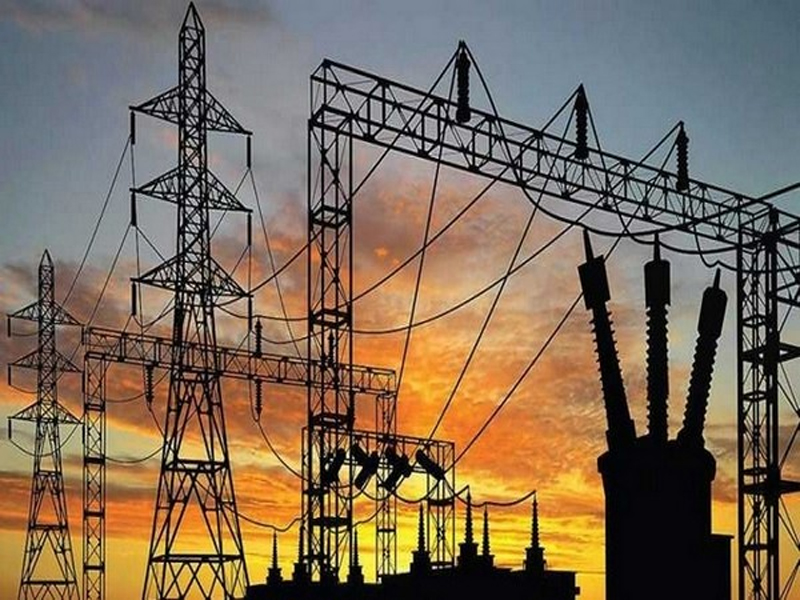Performance based Scheme to last 3 years
Underground cabling also part of proposal
Sanjeev Pargal
JAMMU, Apr 3: The Union Power Ministry has sanctioned Rs 5200 crore for the Union Territory under Revamped Distribution Sector Scheme (RDSS), almost equally distributed between Jammu and Kashmir divisions, to improve power infrastructure to ensure that distribution of power doesn’t suffer during summer in Jammu and winter in the Valley.
Official sources told the Excelsior that the RDSS will be valid for a period of three years and Jammu and Kashmir has been treated as Special Category State by the Union Power Ministry while granting a hefty amount of Rs 5200 crore.
“The amount will be specifically used for strengthening power infrastructure in Jammu and Kashmir including 33KV and 11 KV stations/HT/LTs and other equipments which form part of infrastructure,” official sources told the Excelsior.
They said laying underground cabling has also been proposed in the RDSS but present focus of the Department is to strengthen existing infrastructure to avoid losses and ensure regular supply to the consumers.
Strengthening of infrastructure will reduce power losses, they said, adding it has been observed that infrastructure suffers mostly during summer in Jammu and winter in Kashmir when demand for electricity supply is at its peak in the two divisions.
The RDSS is aimed at strengthening the infrastructure and ensure that electricity supply isn’t affected due to poor or obsolete wires, transformers and Stations.
“The RDSS will be implemented over a period of three years,” the sources said, adding that infrastructure which needs to be strengthened in the Union Territory has either been identified or is in the process of identification and work will be taken up accordingly.
The RDSS, as per the sources, will go a long way in improving infrastructure in the Union Territory.
As the scheme is “performance based”, the funds would be released as the work progresses gradually. However, the funds will not be a problem, they said.
Sources pointed out that revenue collection has touched Rs 2000 crore during 2022-23 in Jammu region which is up by Rs 300 crore from 2021-22 and Rs 6000 crore more than 2020-21 because of strictness by the officers, series of measures taken to improve revenue and Smart Metering in some of the areas.
Revenue generated from Kashmir division is, as usual, less from Jammu region.
The RDSS had proposed that the ongoing approved projects under the Schemes of IPDS, DDUGJY along with PMDP-2015 for the Union Territories of Jammu & Kashmir (J&K) and Ladakh would be subsumed in this Scheme, and the savings of their GBS (approx. Rs. 17000 crore) would be part of the total outlay of the Revamped Distribution Sector Scheme.
The funds under these Schemes would be available for the identified projects under IPDS and for the approved ongoing projects under Prime Minister’s Development Program (PMDP) for the Union Territories of J&K and Ladakh under IPDS and DDUGJY.
The Revamped Distribution Sector Scheme aims to improve operational efficiencies and financial sustainability, by providing result-linked financial assistance to DISCOMs for strengthening of supply infrastructure based on meeting pre-qualifying criteria and achieving basic minimum benchmarks. The Scheme would be available till the year 2025-26. REC and PFC have been nominated as nodal agencies for facilitating implementation of the Scheme, the sources said.
“All Special Category States including North-Eastern States of Sikkim and States/Union Territories of Jammu & Kashmir, Ladakh, Himachal Pradesh, Uttarakhand, Andaman & Nicobar Islands, and Lakshadweep are being treated as Special Category States under the RDSS,” the sources said.
It may be mentioned here that Jammu and Kashmir has taken series of measures to cut power losses and increase revenue as the Union Territory has to face losses running into thousands of crores due to gap between power purchase and revenue.
Because of the new steps, the gap has started reducing and the Government anticipates that it will go down further.


